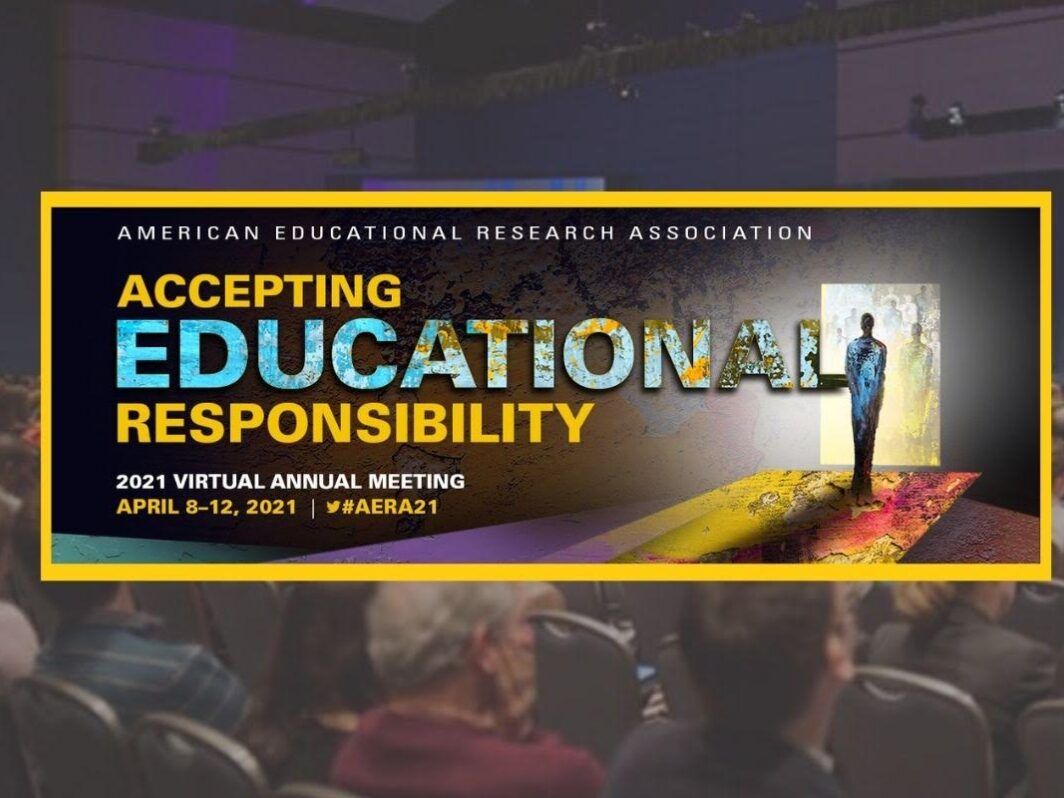Representatives from the Pullias Center, the University of Nebraska, and the Susan Thompson Buffett Foundation participated in a special Division J Vice Presidential Session at the annual gathering to discuss their research methods.
The Promoting At-Promise Student Success Project (PASS), formerly known as the Thompson Scholars Learning Communities (TSLC) Study, is a multi-year, mixed methods study conducted by the Pullis Center that seeks to explore, document, and better understand whether the TSLC program, a comprehensive college transition program at three University of Nebraska campuses, translates into greater student success. The transition program and study is funded by the Susan T. Buffett Foundation in partnership with the University of Nebraska.
Pullias Center researchers were joined by representatives from the University of Nebraska and the Susan Thompson Buffett Foundation on Friday, April 9, 2021, for a special Division J Vice Presidential Session of the 2021 AERA Conference, held virtually, to share their perspectives on the study and its methods.
In the session, presenters highlighted how researchers worked with the various stakeholder groups and created transformative and reciprocal research. “This project is unique in the way it combines policy relevant research, evaluation research to inform practice, and scholarly literature for the field while operating at all three levels simultaneously,” noted Adrianna Kezar, director of the Pullias Center, during her introduction. The session also provided an overview of the type of mixed methods design that can lead to actionable research at both the policy and practice level.
Kellie Pickett, Director at The Susan Thompson Buffett Foundation, and Susan Fritz, Ph.D., the University of Nebraska’s executive vice president and provost, followed Kezar’s introduction to frame the participation of their respective organizations and discuss the goals of the project.
This was followed by a presentation from Pullias Center researchers Tatianna Melguizo, Darnell G. Cole, and Ronn Hallett, who addressed the mixed methods design implemented to meet the project goals. Hallett spoke about qualitative research and its ability to inform campus policy as well as collaboration with the campuses. Melguizo addressed the summative research and how it can inform policy at the state level. Cole expanded on that, discussing how formative research can help to inform policy at both the state and campus level.
“A big point was consistency across the different methodological techniques that were being employed to help identify and create a cohesive story,” shared Cole. “This allowed us to use the other little nuggets of findings to pan out the ongoing conversation of the research”
“We discovered it was about HOW the programs we were studying would do things, not WHAT those programs did, that had an impact on students,” Hallet explained, highlighting an important discovery from the research designed by the team.
The 90-minute event also included a pair of panels moderated by Kezar. The first dove into ways that the research informs policy and practice followed by a panel on lessons learned from the partnerships between the university, foundation, and research center.
The entire special Division J Vice Presidential Session was part of the 2021 AERA annual conference, a multi-day gathering to facilitate the advancement of knowledge about education, encouragement of scholarly inquiry related to education, and the promotion of the use of research to improve education and serve the public good.
Learn more about the PASS Project on the Pullias Center website.


